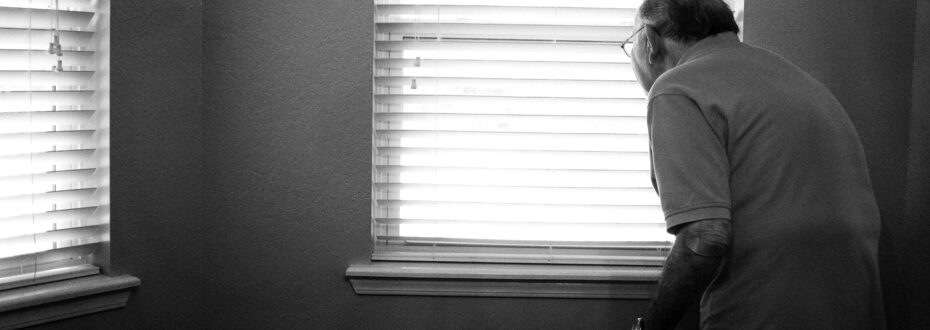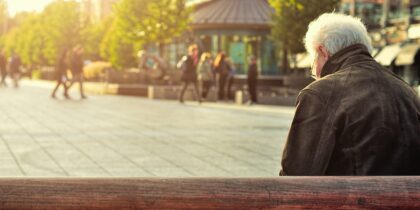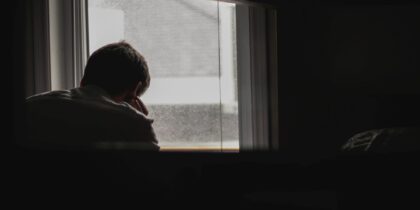By Jan Hutchinson
I’ve been in search of ways to support better mental health for decades.
As a newly qualified social worker I encouraged my clients to try the things we both thought would make them feel better: self-care, becoming involved in the opportunities within their communities, using the arts to find some external meaning in an attempt to overcome the prison of their own mind which was causing them so much distress, and talking about how they feel.
Over the years I have thought really hard about what improves mental health. For some people medication is helpful. For others, it serves simply to dampen their perfectly natural and understandable response to the circumstances in which they find themselves: the unhappiness and despair caused by loneliness, unemployment, fear, bereavement, pain and isolation. These can all lead to a depression that can deepen and become an anxious hopelessness from which there is no escape, a feeling of being trapped with nothing positive to come. These are the things that need to be fixed, not the individual.
The curve of physical illness from the coronavirus pandemic is likely to be followed by a second curve of markedly increased mental health need. We know that people aged over 80 are disproportionately affected and much more likely to die from the effects of Covid-19. Have we considered that they might also be much more likely to have increasingly poor mental health since the start of lockdown?
[Older people’s] risk was largely ignored as the media continued to manage the nation’s anxiety with phrases such as “she was in her 90s and had underlying health conditions”, and initially excluded care home deaths from official figures
The lives of our 80, 90 and 100 year olds in care homes have become an inconvenient truth. They should be completely shielded from the risk of second-hand contact, but this is impossible unless a small group of staff is prepared to move in with them 24/7, as a handful of highly dedicated carers have done. This dilemma was obvious to me as soon as the practicalities of lockdown were discussed. But their risk was largely ignored as government reports and the media continued to manage the nation’s anxiety with phrases such as “she was in her 90s and had underlying health conditions”, and initially excluded care home deaths from official figures. I was told recently of a care home where the residents all have Alzheimer’s Disease and are therefore blissfully unaware of the pandemic and their personal risk. I couldn’t bring myself to look relieved about this.
Personal resilience is a protective factor against mental health problems, and who among our society are more resilient than people for whom the atrocities of the Second World war are living memory? But what makes us think that our older people get used to the fear and dread of bereavement, because they have had more of it? That their loss of mobility and opportunities to visit pubs and restaurants matter less to them than to younger people? Isn’t it worse when the little you have is taken away? It is a silent scandal that some consider it a truism to say that older people are at high risk of experiencing chronic loneliness.
What makes us think that our older people get used to the fear and dread of bereavement? That their loss of mobility and opportunities to visit pubs and restaurants matter less to them than to younger people? Isn’t it worse when the little you have is taken away?
In every town and city there are hundreds of people living in care homes, many with the mental faculties to be well aware of the crisis and how it is affecting them. Their doors are locked, there won’t be any visitors bringing flowers, gifts of food, mother’s day and father’s day cards, birthday cake and balloons. There will be no summer celebrations, no Christmas party, no one kissing them, or touching them except for essential personal care. This is a prison with locks of physical disability and walls of poor mental health, not to mention the technological challenges. Zoom and Facetime are difficult for older people, and many have a hearing or sight impairment which makes the experience disappointing and frustrating, even if it can be facilitated.
What have I learned, over the years, about supporting better mental health? I know that social connections, exercise, leisure activities, and spending time with loved ones are all still important, but very few of these are now possible for care home residents. Even talking to others about how they feel is out of the question for people who only converse with their professional carers, staff already over-burdened with physical health and social care tasks, under daily fear of an outbreak in the home. So they sit alone, wondering if they will still be alive when lockdown is lifted, fearing that they will die without seeing the people they love again.
It is a silent scandal that some consider it a truism to say that older people are at high risk of experiencing chronic loneliness.
We must recognise the skill and dedication of our care home staff. We must respond by giving them what they need, which is both PPE and the support of colleagues providing mental health interventions for their residents. If this has never happened before, what better time to start than now?
Our older people are a group at high risk of serious illness and death from Covid-19, and they are individuals whose lives matter. When we consider the need for protection from physical and mental ill health, they are no less deserving than the rest of us. We need to remember that they, as much as we, want to believe we will meet again.





